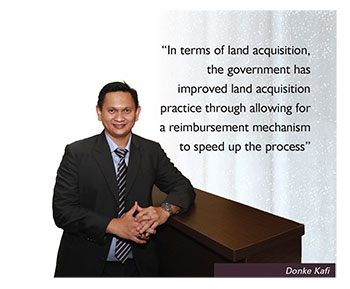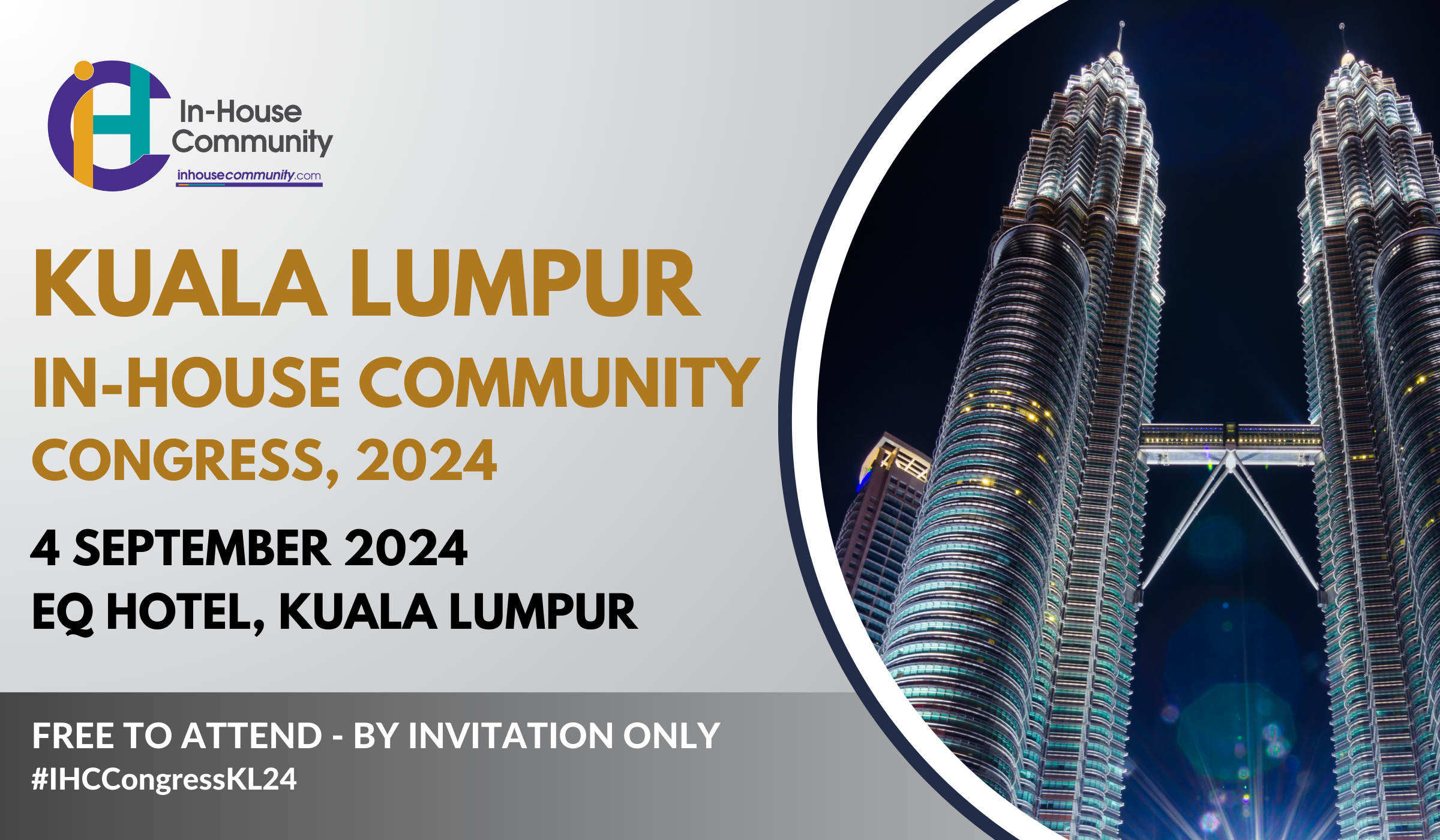Looking at new investment regulations for both the private and public sector in Indonesia, Veronica Situmorang and Donke Kafi of DK & Situmorang Lawyers inform the In-House Community about the various hurdles they’ll have to overcome to invest in Indonesia’s power sector.
Background
Indonesia is always struggling to fullfill its electricity needs, while the demand for electricity keeps increasing. To respond to this issue, the government of Indonesia has undergone various initiatives, the most current one being the launch of 35000 MW Projects to generate electricity for five years from 2015 to 2019, targetting building 109 power plants. Accordingly, while relying on the state electricity company PT Perusahaan Listrik Negara (PLN), involvement of private sectors is also sought. While the PLN will carry out 35 projects to generate electricity in the amount of 10.681 MW, 74 projects are open to be built by the private sector with a total capacity of 25,904 MW.
The power plants open to private entities are: steam power plants (Pembangkit Listrik Tenaga Uap – PLTU), water power plants (pembangkit listrik tenaga air – PLTA), coal power plants (pembangkit listrik tenaga batubara – PLTB), gas power plants (pembangkit listrik tenaga gas – PLTG), micro hydro power plants (Pembangkit listrik tenaga Mikro Hidro – PLTMG), gas-steam power plants (Pembangkit Listrik Tenaga Gas-Uap – PLTGU) and micro hydro-gas-steam power plants (Pembangkit Listrik Tenaga Micro Hidro-Gas-Uap – PLTMGU). Meanwhile, PLN will build equivalent plants and will also develop other power plants such as diesel power plants (Pembangkit Listrik Tenaga Disel – PLTD), geothermal power plants (Pembangkit Listrik Tenaga Panas Bumi – PLTP), and mini hydro power plants (Pembangkit Listrik Tenaga Minihidro).
Overview of the 35000 MW programme’s structure
In reference to Article 8 of Government Regulation No. 14 of 2012 on Electricity Supply Business Activities (GR 14/2012), electriciy supply businesses for public interest shall be carried out according to the General Plan of the Electricity Supply Business Plan Rencana Umum Penyediaan Tenaga Listrik (RUPTL). In order to speed up the electricity production, and launch of the programme, the PLN has issued RUPTL for the period of 2015–2024 adhering to the decree of the Minister of Energy and Mineral Resources No. 0074 K/21/MEM/2015. The plan will then guide long-term development of electricity supply businesses.
In the case of PLN self execution, it will procure EPC companies through open tender. In the case of the implementation through private participation or independent power producer (IPP), the programme can be executed through a number of schemes such as Regular IPP, Fast Track Programme II (FTP II) and Public Private Partnership (PPP). Possibilites for unsolicited proposals are also open.
 Regular IPP Regular IPP is regulated under Government Regulation No.14 of 2012 on Electricity Power Supply Business (GR 14/2012), and the Regulation of Minister of Energy and Mineral Resources No.1 of 2006 as amended by MEMRR 04/007. The projects under this route will be entered into between the PLN and an IPP company. The role of the government in this scheme is limited to the issuance of permits required for project implementation. In this case, a private entity will use its own assets and become the owner of the land during the realisation of the project. The IPP company will be selected through open tenderor direct selection. In executing the project, the IPP company will not receive any guarantee from the government.FTP II This programme was launched in 2010 following Presidential Regulation No. 04 of 2010 on Appointment to PLN To Carry Out the Acceleration of the Development of Electrical Power Generating Plants Utilising Renewable Energy, Coal and Gas (PR 04/2010) as amended by PR 194/2014. The IPP company will be selected through open tender. In implementing the projects under FTP II, the IPP company will be qualified for Business Viability Guarantee (BVGL) following Minister of Finance (MoF) Regulation No. 173/PMK.011/2014 (MOF 173/2014) BVGL is a government guarantee to ensure the PLN fullfills its financial obligations related to failure of payment and/or termination based of the power purchase agreement (PPA). BVGL is granted by the MoF to the IPP company on a case-by-case basis. The PLN will propose to MoF together with its feasibility study, latest PPA draft, financial model, statement of the PLN, tender documents, risk and mitigation analysis, location permit or lend and borrow of forest area from Ministry of Forestation. The Risk Management Unit at the Fiscal Policy Body at the MoF will evaluate and analyse the project and its documentations, and give recommendation to the MoF. In practice, the MoF specifies in the BVGL the list of the PLN payment obligations under PPA. During the last four years, the regulation governing BVGL had undergone a number of revisions before issuance of MOF173/2014. Hence, now such guarantee will grant the project company direct contractual rights against the government, making it more useful to sponsors and their lenders. PPP According to PR 38/2015, an unsolicited project can be initiated by a private entity under the conditions that: it can be integrated into a master plan in the relevant sector; it is economically and financially viable; and it has a project initiator with sufficient financial capacity to fund the project. The selection of private entity shall be conducted through a tender process. After the selection process, the Government Contracting Agency (GCA), as the chairman of the project, will issue a decree to determine the form of compensation to be provided to the project initiator. The forms of compensation may include: adding 10 percent to value of the total evaluated bid score; paying compensation for the feasibility study (FS) carried out by the investor in the event a project is cancelled or not implemented by the investor for whatever reason; and allowing the investor to change the tender if, according to the result of the open tender, there are better bids from other business entities (the ‘right to match’). In the implementation of an IPP project under the PPP mechanism, PR 38/2015 stipulates that the GCA may provide a government guarantee (GG) in the form of financial responsibility through a particular GG mechanism. GG will be awarded by the MoF through the Indonesia Infrastructure Guarantee Fund (IIGF). This is a special body established to award infrastructure projects under PPP schemes. IIGF guarantees are based on a cooperation agreement. BVGL is different to that explained above. While BVGL is awarded to cover IPP companies from non-fullfilment obligations by PLN, GG is financial compensation awarded by the MoF through IIGF to business entity through a risk allocation scheme. In order to receive GG, the GCA shall fulfill the following requirements:
Other facilities that may be obtained by private entities include government support. Pursuant to PR 38/2015. Government support will be provided in the form of financial support and/or other support awarded by GCA and/or MoF according to their authority. Financial support includes tax incentive, exemption from import duties and partial support for construction. Other support varies according to the nature of the project, such as licences. |
 Improvements and challenges surrounding the 35,000 MW programme In order to realise the programme, the government has taken several favourable initiatives such as issuance of a number of regulations that create legal certainties. Some of the improved provisions include improvement on the feed-in tariffs, diversifying IPP development to provide room for competition and collaboration, creating more clarity on the PPP regulations (especially on how such power infrastructure projects are implemented, how risks are shared, how guarantees are given and accelerating procurement process that will reduce cost and time). Further, the government is also committed to improving bureaucracy through establishment of a project management organisation (PMO) specifically for the programme. Hence, investing in power projects in Indonesia seems promising and, as is indicated above, can be done in a number of ways. However, challenges to the programme remain apparent in some respects, such as land acquisition, permits, financing and tender process.In terms of land acquisition, the government has improved land acquisition practice through allowing for a reimbursement mechanism to speed up the process. Yet, there is still a question as to whether this can work out. Further, land acquisition is an everlasting issue due to factors such as capacity issues amongst public servants to conduct the process, lack of government support, potential rejection from landlords and/or local NGOs and changes in policy/regulation that may lead to process inadequacy. Permits are still considered an issue although Indonesia has improved the climate through applying a national single window in processing permits through one stop service (OSS). This is because specific permits should be issued by certain authorities which are still reluctant to transfer their permit processing mandate to OSS. Financially, the primary challenge is difficulties in reaching financial close. This is because financing power projects adopts project non-recourse financing where the lending bank is solely entitled to repayment from the profits of the project, not from other assets of the borrower. Accordingly, the financing institutions may require guarantee from the government to such risks involved. Yet, processing government guarantees involves a prolonged administrative process resulting in long processing time. The last identified challenge is procurement of private entity to become the IPP company. Again, human resource capacity is the most critical issue. Government officials are only used to procuring regular work/services using government budget. The way investors are selected is, in some ways, different to that of regular procurement of work/services. In regular procurement, the detailed engineering design (DED) is prepared by the user, while in selection of investor, DED is prepared by the company. This is to transfer some risk to the investor as they will be in charge of the project development. Hence, if foreign investors wish to participate in the electricity sector, the first thing they need to pay attention to is regulations that arrange the limitations of foreign equity ownership in electricity business activity. The arrangement concerning restrictions on foreign capital is further regulated in PD 39/2014, specifically stating that the maximum foreign ownership for an entity that produces 1–10MW, is 49 percent. Meanwhile, foreign investors wishing to produce over 10MW can obtain a maximum of 95 percent. In the PPP mechanism, the foreign investor should have capital until 100 percent during the concession period. However, it should be noted that the power supply activities are closed to foreign investment for projects to produce less than 1 MW. Power supply business activity can be carried out by a state owned enterprise, a region owned enterprise, private entities in the form of Indonesian legal entities, cooperatives and NGOs. Investors, especially foreign ones, may conduct their activity by establishing limited liability companies as stipulated in Law 25/2007. In addition, other procedures that shall be followed by the private entity are the establishment of business area as set out in the ESDM 28/2012, Electricity Supply Business License (IUPTL) as stipulated in the ESDM 35/2013 and RUPTL. IUTPL is awarded after fulfilling administrative, technical, and environmental requirements. |
veronica@dknslawyers.com
donke@dknslawyers.com
www.dknslawyers.com


















